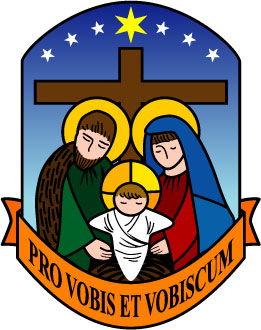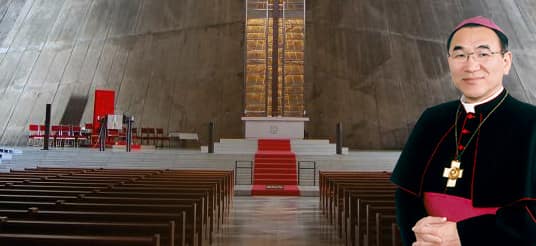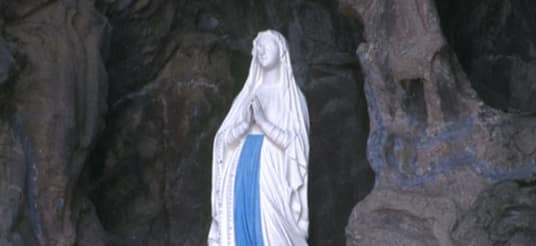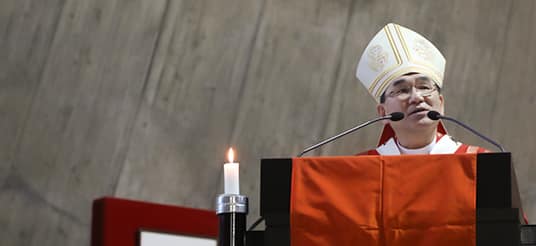Archdiocese of Tokyo

Local Community Relations Very Important! An Interview with Auxiliary Bishop Koda of Tokyo
This interview with Auxiliary Bishop Koda of Tokyo appeared in the Spring issue of The Japan Mission Journal.
Bishop Koda, thank you for agreeing to this interview. Two years have passed since you were consecrated Auxiliary Bishop of Tokyo. How do you feel now about being a bishop?
There are many problems, and trying to deal with these problems takes a lot of energy, and I sometimes feel that I would like to do something positive and new.

What problems are most pressing just now?
Practical ones. The Japanese Church, including the Church in Tokyo, was built up after the War. Many or our buildings are forty or fifty years old and their upkeep poses problems.
Another problem concerns the kindergartens that are attached to many churches. The pastor has been the manager of the kindergarten, and Catholics of the parish have taught in them. Now all these people are growing older, and the problem of finding replacements is a difficult one. The needs of society have changed. We are asking what is now required of kindergartens, and how best to respond to these needs. Qualified people with energy are needed. Parishes on their own cannot meet these demands, so it is necessary for the diocese to look at the situation and support these places.
The number of children is declining, as is the number of priests. We wonder what will happen in the future to the kindergartens run by the Church. The number of children is declining especially in rural areas, not so much in Tokyo. So if a kindergarten is run well, the children will still attend. But what we feel to be a problem is that many kindergartens are religious corporate bodies (shûkyôhôkin). The government idea that kindergartens should be educational corporate bodies (gakkôhôjin) is becoming stronger, and the amount of subsidies is being gradually decreased. So even if there are enough children, running a kindergarten is becoming increasingly difficult. Therefore if the requirements are to be met, we have to make them corporate educational bodies. But in reality they are in small church grounds, and it is very hard to clearly separate religious corporate bodies and educational corporate bodies.
I would like to ask you about the liturgy in the Japanese Church. Some people say that doctrine and liturgy in the Japanese Church are too Western. Some priests and theologians would like a more Japanese-style liturgy. What do you think? Do you think that among the Japanese Catholics there are also people who feel this?
What do we mean by a Japanese-style liturgy? Do people mean incorporating parts of Japanese Noh into the liturgy, or bringing into the liturgy some parts of the Japanese tea ceremony, which takes place on tatami mats. I have heard of suggestions like that, but I wonder about it. People of my generation would be inclined to resist such moves. In ordinary life people do not live on tatami. People live their lives mostly without any contact with Noh or the tea ceremony. If people were to come in contact with these only at Mass time, then it would feel unnatural. So I am not in favour of taking something from Japanese culture into the liturgy on a superficial level.
What about the present liturgy? Do you think it is all right as it is?
I do not think it is all right as it is, but rather than just including some aspects of Japanese culture in the liturgy on a superficial level, I feel that we must over a long period of time try to create a liturgy which expresses the faith experience of the Japanese people. The problem of language is a serious one. The Japanese language is very different from Latin, and trying to express our faith experience in the liturgy takes a long time, but I think it is important.
In a project I was involved in for a number of years, Japanese people, on their own, wrote the proper prayers of the Mass, such as the Opening Prayer. They were composed on the basis of the three-year cycle of Sunday readings, and we tried to write prayers that were suitable for each Sunday’s Mass. Now these prayers are printed in the Sunday Mass leaflet, and actually used in the Mass, but they are mostly translations of the Latin. But we tried to write prayers based on our own faith experience. The question is whether or not they will be approved by Rome; I do not think they will. This has been tried already in Europe—in France and Italy. In English, too, prayers based on the three-year cycle of readings were composed, but there was mostly a negative reaction to them, so they cannot be formally used in the Mass at present. In doing that work we tried to express the faith experience we have of meeting God here in Japan, and to express it in our own words.
In recent years dialogue with other religions is receiving much emphasis. Here in Japan dialogue with Buddhists, in other countries dialogue with Muslims for example, is considered very important, but the Japanese Catholic Church does not appear to be very active in this field. For example, is there dialogue about spirituality and pastoral practice, social activity, theological reflection, and so on, with Buddhists?
In reality, we do not have the time for this, it is very difficult.
Do you think it would be good if there was such dialogue?
I think it would be good it there was, and there are people engaged in such dialogue, but I personally do not have time to spare for such activity.
At a Caritas Japan seminar last autumn about problems of violence, domestic violence and child abuse, and which touched on the problem of violence in churches also, a man from Chiba involved with children who are victims of abuse was invited to talk. His name is Kashiwami Reiho, and he is a Jôdo Shinshû priest. He said he was very grateful to be invited to talk at a Catholic seminar. At the start, he was asked to talk a little about Jôdo Shinshû, and he said this: There are three main elements to the Jôdo Shinshû teaching. Firstly, examine oneself closely as a human being so one does not become selfish. For Jôdo Shinshû, a human existence that is not selfish is called karma, and one has to examine oneself closely, as sin dwells with our hearts. Then we become aware of the existence of the Amitabha Tathagata who saves and helps us. That is the second element. And the third element is connections with people, to care for the people we encounter and establish relationships with during life; to live with these people to the best of our ability. These are the three essential elements of the Jôdo Shinshû faith, he said. When I heard that I thought that it was almost the same as what we ourselves believe.
The Amitabha Tathagata (Amida Buddha) is the probably the equivalent of Christ, and especially in Jôdo Shinshû and Mahayana Buddhism they are clearly aware of a transcendent salvation, and in that context the problem of human sin, and the problem of living a truly loving life, and I felt that on a fundamental level, we really have much in common with each other. In tackling real social problems we can cooperate with each other, and in doing so—in tackling these truly human problems—understanding each other’s faith, and sympathizing with each other— is very important I think.
Do you think it would be good if there were more activities life that?
Yes, I think it would.
But this would be difficult at the parish level.
Yes, it would, I suppose.
For example, discussing social problems with people from the local temple or shrine, cooperating with the different activities they are involved in, and so on.
But in some places I hear people talk about this. For example, Protestant people might think about doing something to help the homeless people in their locality, then the Catholic Church would cooperate with this, and Buddhist people would also cooperate, and there would be a group of different religious believers trying to help the homeless.
So rather than dialogue about spirituality or theology, it is in practical issues, when there are people who are really in trouble, really suffering, that Buddhists and Christians should especially seek to cooperate. This kind of practical work is, I think, often easier to undertake.
In recent years, not only in Japan, but in many other countries also, the number of immigrants and refugees is increasing a lot. The number of people coming from abroad has drastically increased the number of Catholics in Japan. Do you think Japanese Catholics and foreign Catholics are interacting well with each other?
There are places where they are, and places where they are not. The parish is also the place where foreign Catholics gather together. So the understanding of the parish clergy is very important. But most Japanese priests cannot speak a foreign language, and there are places where one cannot say that there is good communication between the priest and foreign Catholics. Then there are national characteristics, different customs, and so on, and there are lots of small difficulties.
As Bishop, how do you advise priests about these matters?
Before I became a bishop, I worked in Chiba for five years, and while saying so may be impolite, the common problem for the churches in Chiba is this problem, as there are foreign Catholics in each church. There are more foreigners in the churches in Chiba than in the churches in metropolitan Tokyo. As it was felt that one priest or one church is unable to cater to the needs of such people, for many years the Chiba churches have been inviting Filipino lay missionaries and paying their expenses. These lay missionaries went around the churches and organized baptismal preparation seminars. They told people that if they did not attend these seminars at a Chiba church, their children would not be baptized. They have been doing this for a long time, and the Catholic Tokyo International Center (CTIC) developed from an aspect of this. But now a kind of a gap appears to have opened up between the CTIC office and Chiba and the parish priests there. That is really regrettable, and I think it would be good if once again the priests working in Chiba got together with the Filipino priest and lay missionaries working there, and talked about what they feel and experience, and see in what ways they could cooperate with each other. As bishop I would like to be involved in that.
Interaction among Japanese Catholics and foreign Catholics is not just a problem for the diocese of Tokyo, but is a topic for all of Japan. What does the Bishops’ Conference think about this?
There are not a lot of foreign Catholics in every diocese. Some dioceses have many, some few. The Bishops’ Conference has the Catholic Commission of Japan for Migrants, Refugees and People on the Move, and the bishops of dioceses with many foreigners are concerned about their problems, and I think that they are really interested in cooperating with them.
Do you think that there could be more cooperation between Japanese Catholics and foreign Catholics?
Yes, I do.
For example, at some churches there is an English Mass on Sunday afternoons and a Japanese Mass in the mornings, is that desirable?
Circumstances vary, and at the national level and the Bishops’ Conference level they do not say you should do this or do that. But in Tokyo diocese, and in the dioceses around Tokyo, especially Saitama diocese and Yokohama diocese, circumstances are in some instances very similar, and we have been discussing them for a number of years. As a diocese we are considering these problems, and we would like to bring the Japanese Catholic communities and the foreign Catholic communities closer together. There are many factors involved, and this can be difficult in some places, but I think people are becoming more and more conscious of the importance of this rapprochement.
It concerns especially the so-called ‘double’ children. If they are taken by their parents to a Tagalog or English Mass they do not understand it at all! When the time comes for these children to receive First Communion, if they have up to that only attended the foreign language Mass which they do not understand, how do we deal with them? So foreign Catholics who are settled in Japan need a Japanese Mass and a Japanese language Sunday School. I think the two communities will come closer together through the children.
Recently in Japan, bullying in schools and other problems with young people, domestic violence, suicide, political corruption, the political influence of right-wing organizations, and the increasing social inequality are coming to the fore. Has the Catholic Church or the Bishops’ Conference considered, for example, issuing a common statement with other religions about these social problems?
It is two years since I became a bishop, and I have not heard anything about such moves.
Do you think it would be good if the Bishops’ Conference cooperated with or held talks with other religious bodies about these matters?
Yes. But the Japanese Catholic Church is still very small, and so our ability to speak out is also weak.
So would it not be good to address issues together with other religions?
Yes, it would. But for the Japanese Bishops’ Conference this is not so easy. At the local level there is much more movement. For example, among people who are involved in dealing with child abuse and domestic violence, there are many Protestants working together with Catholics, and Buddhists also, so this kind of cooperation is quite extensive. With the Catholic Church, up to this, when there was some work that had to be done, a religious order was formed, and they concentrated on doing this. There were several such initiatives in Japan after the War; for example caring for people with tuberculosis, caring for mentally handicapped people, institutions to provide certain kinds of care; with regard to such social problems, the religious orders did a lot of work. Nowadays the idea that a religious order can meet such needs is no longer realistic as their members are mostly elderly and fewer. Rather it is NGO’s and NPO’s which become involved, and when they do, people come together. While they are not Catholic or Protestant as such, within them there are many Protestants and Catholics, and Buddhists also, and this kind of activity is spreading.
Are there special topics on which the bishops have spoken persistently over the years? Which groups within Japanese Catholicism have been most heard by them?
A few years ago the bishops issued a long pastoral letter entitled Reverence for Life (Inochi e no manazashi). I do not know what was the lead-up to it or how it was written, but in it the bishops address problems which are present in Japan today, especially problems concerning life, and it became an important message for many people. Another concern is issues relating to peace. These are particularly pressing now, since the governing parties are thinking of revising the constitution, with special focus on the article renouncing war, and the principle of the separation of religion and politics. We consider these to be very serious issues. In 2005 the bishops issued a message on the 60th anniversary of the end of World War II, and I think this year we are considering a special message on the separation of religion and politics.
When you issue such a message, do you think Japanese politicians will read it?
I suppose they will not read it.
Apart from Catholics, who do you think will read it?
With regard to amending the Constitution, in article nine it is decided that Japan will not possess any weapons, but in reality we have the defence forces, and there is a movement to have the constitution recognize the minimum military forces necessary for defence. But against that, people say that if you alter that article, change article nine, the basis of the Japan which has been constructed up to this, the Japan which has not gone to war in over sixty years, that important basis will be shaken, and the people who are worried about this are not only Catholics, but many other people in Japan, and such people have many networks. Among such people there are people in politics, and many people in political parties, trade unions, and so on, and people who are members of religions play an important role in these. Catholic bishops and priests are involved in these networks, and perhaps such people will read the bishops’ message.
Would if not be good if Catholics became more involved with such trade union members and members of other religions working in networks actively tackling social problems?
Yes it would. But what is difficult is that regarding the constitution and the Yasukuni Shrine problem, among Catholics there are people in a variety of positions, and with a variety of opinions. So if the bishops and priests move along with one idea, there will be people who will oppose it very loudly.
I would like to touch on environmental problems. Global warming is progressing, environmental destruction is increasing, and this now is being reported in the media almost every day. Would it not be good if the Church spoke out a little bit more seriously about environmental destruction, reflected on our lifestyle, and so forth?
Yes it would. But I do not hear much about any such large movement. Of course, on a small level, for example there are small groups in parishes considering these problems, and trying to do something, but these do not result in any large initiatives.
Why is this?
Because it is difficult, I suppose. The Japanese Church is really only a small group in society, and when people really feel strongly about such problems, rather than doing something within the church, there are many kinds of communities and activities in the local area. And Catholics participate in these—this is the reality of Japan. For the Church to do something is difficult.
Yes, it is difficult. But should priests not refer more to environmental problems in their homilies, study groups, and so on?
Yes, they should. But environmental problems cannot be addressed by Japan alone.
It is a problem for the human race. And as human beings, living on this planet, we cannot be indifferent to what is happening.
That is right.
These days, missionaries from abroad, religious also, are becoming fewer. As a bishop, and Tokyo diocese also, what are you hoping for from foreign missionaries?
From a historical viewpoint, Japan is a very difficult country. Firstly, there was Toyotomi Hideyoshi’s edict expelling the Christians, the first persecution of the whole Church, and foreign missionaries were expelled from Japan. Then, at the beginning of the Showa era, as Japan gradually became militaristic and nationalism increased, foreign missionaries were again rejected. Japan is this kind of country. And there is this kind of danger in Japan. There is a tendency to rush towards extreme militarism — not only in the government, but also in the consciousness of many Japanese people. Maybe even among people in the Church in Japan there is a kind of narrow consciousness.
But our faith goes beyond country and race and is related to all the people in the world. As visible expression of this I think the role of missionaries from abroad are very important. Not just because we are short of priests and we would like some to come from abroad, or because we would like to spread Christianity among the Japanese some more, but so that the we in the Japanese Church may not become isolated, missionaries and Catholics who come from abroad are very important to us. I think it is alright if they point out the strange things about the Japanese Church or the strange things about Japanese society to us.
Bishop Koda, what kind of dreams or hopes do you have for the future of the Church in Japan?
As I we mentioned already, there are many kinds of social problems, for example the problem of violence, crime, suicide and others, and the cause of these problems is, I think, the collapse of the traditional community. People are becoming more and more isolated. Of course this is not happening only in Japan—it is a worldwide problem. Where do these isolated people end up? They really feel tremendous stress, resort to violence out of pure frustration, and suicide too is also related to this. How do we bring these people isolated in modern society back into the community—this is a big question.
Of course in Japanese society, as in many other places, efforts are being made to build up the local community once again; and especially with the increase in elderly people and the decrease in children. I think that people who are healthy and working do not feel the need for a local community. But when they grow old, and can no longer take part in social activities and begin to stay in their local area, and they grow weaker physically, then they begin to feel the need for the support of the local community.
Another thing is the rearing of children. Children should not just be reared in the room of an apartment, and not with the mother and child looking at each other all day long, but children should be reared with more contact with people in the locality. So this is why people are now calling out loudly for the building up of the local community. How well things will turn out, I do not know.
When we examine our faith in this kind of social context, the fruit of our faith, our Christianity is a faith we have inherited through the community. Talking about “God and myself” is a very modern view of faith, but in reality it is at the center of the community that we can find the invisible God. People are linked to each other through this divine presence. We need to recover this extremely important perspective on faith.
Especially regarding Japan, since the Meji era Christianity was brought to Japan by foreign missionaries, and within this faith the concept of “God and I” has been central. Of course many people have come to an awareness of their faith themselves as adults and decided to receive baptism, but always the stress has been on the individual’s personal relationship with God. Along with the faith of the community the faith of the family has shallow and strong elements, but family ties are becoming weaker in the present society, and so the family faith is not being inherited by succeeding generations. That, I think, is the reality. And so we have to try and bring back the sense of a faith community. I believe this is very important. This is necessary, but in a place like Tokyo, where there are hundreds of thousands, maybe millions, living within a parish area, it is difficult to feel any sense of community. And so in this context I believe that it is very important to try and build small communities.
So what I am thinking about and recommending is for Catholics to come together, read the bible and pray together. And whether there are ten or twenty people, if coming together like this becomes usual, I think it will be a great support for everyone.





